 I assume that everyone here has seen A Christmas Story?[1] It’s hard to live in the Cleveland area and not to know about the 1983 cult classic Christmas movie, and by now, with the Turner movie channel running it as a marathon every Christmas, to have seen it. Do you remember the character “Scut” Farkus? That was the bully who, accompanied by his toady Grover Dill, made Ralphie’s life miserable. Until, that is, Ralphie had simply had enough and exploded, knocked Scut down into the snow, and gave him a bloody nose. This morning, I’m going to try to convince you that that’s sort of what’s happening in today’s gospel lesson.
I assume that everyone here has seen A Christmas Story?[1] It’s hard to live in the Cleveland area and not to know about the 1983 cult classic Christmas movie, and by now, with the Turner movie channel running it as a marathon every Christmas, to have seen it. Do you remember the character “Scut” Farkus? That was the bully who, accompanied by his toady Grover Dill, made Ralphie’s life miserable. Until, that is, Ralphie had simply had enough and exploded, knocked Scut down into the snow, and gave him a bloody nose. This morning, I’m going to try to convince you that that’s sort of what’s happening in today’s gospel lesson.
A rather standard way of preaching the Temptations of Christ is to say that Satan’s point is to raise doubts about whether Jesus is who he thinks he is by casting doubt on his relationship with God, and that Jesus’ rejections of the temptations “prove his identity as God’s divine and beloved son.”[2] I’m probably a heretic, but I don’t think that’s the point of this story at all; that’s not what this episode is about.
 “You are the light of the world. … [L]et your light shine before others, so that they may see your good works and give glory to your Father in heaven.”
“You are the light of the world. … [L]et your light shine before others, so that they may see your good works and give glory to your Father in heaven.”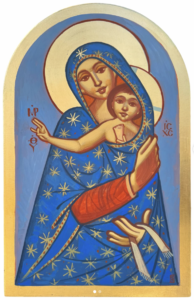 I’m sure you’re all familiar with Howard Thurman’s meditation entitled The Work of Christmas:
I’m sure you’re all familiar with Howard Thurman’s meditation entitled The Work of Christmas: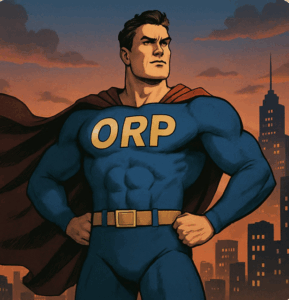 Do you all know what a tort is? Tort … T-O-R-T … no E on the end; I’m not talking about those wonderful little German or Austrian pastries. A tort is a civil wrong that causes harm to another person, resulting in legal liability for the person who commits the wrong. You leave a puddle of milk on the floor of your grocery store knowing it’s there, then someone slips in it and injures themselves: you have committed a tort. You speed through a stop sign, collide with another car, and injure the driver: you’ve not only broken the law, you’ve committed a tort.
Do you all know what a tort is? Tort … T-O-R-T … no E on the end; I’m not talking about those wonderful little German or Austrian pastries. A tort is a civil wrong that causes harm to another person, resulting in legal liability for the person who commits the wrong. You leave a puddle of milk on the floor of your grocery store knowing it’s there, then someone slips in it and injures themselves: you have committed a tort. You speed through a stop sign, collide with another car, and injure the driver: you’ve not only broken the law, you’ve committed a tort.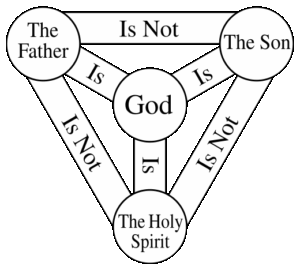 A few weeks ago, as I was looking forward to my annual cover-Rachel’s-vacation gig here at Harcourt Parish, my plan was to preach a sort of two-part sermon on play and playfulness. Seemed like a good summer-time thing to do. Last week, on Pentecost Sunday, I suggested to you that playfulness is a gift of the Holy Spirit, that play is why we were made. Today being Trinity Sunday, I planned to follow-up with a few words about how a metaphor of play and playfulness can help us understand and participate in the relational community which the triune God is.
A few weeks ago, as I was looking forward to my annual cover-Rachel’s-vacation gig here at Harcourt Parish, my plan was to preach a sort of two-part sermon on play and playfulness. Seemed like a good summer-time thing to do. Last week, on Pentecost Sunday, I suggested to you that playfulness is a gift of the Holy Spirit, that play is why we were made. Today being Trinity Sunday, I planned to follow-up with a few words about how a metaphor of play and playfulness can help us understand and participate in the relational community which the triune God is. 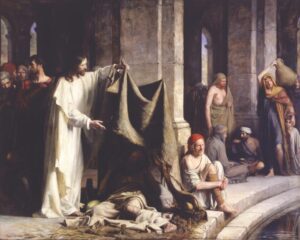 “Do you want to be made well? … Stand up, take your mat and walk.”
“Do you want to be made well? … Stand up, take your mat and walk.” One of the things I try to do when I read the stories of Jesus in the Gospels, when he uses an odd or striking metaphor like “I will make you fishers of people”
One of the things I try to do when I read the stories of Jesus in the Gospels, when he uses an odd or striking metaphor like “I will make you fishers of people”
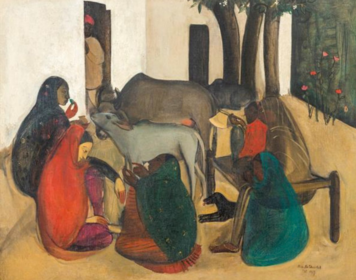 “They’re eating the dogs, they’re eating the cats.”
“They’re eating the dogs, they’re eating the cats.” The United States is, at least ostensibly, a very religious country. Nearly two hundred years ago, Alexis de Tocqueville wrote that “there is no country in the world where … religion retains a greater influence over the souls of men than in America; and there can be no greater proof of its utility and its conformity to human nature than that its influence is powerfully felt over the most enlightened and free nation of the earth.”
The United States is, at least ostensibly, a very religious country. Nearly two hundred years ago, Alexis de Tocqueville wrote that “there is no country in the world where … religion retains a greater influence over the souls of men than in America; and there can be no greater proof of its utility and its conformity to human nature than that its influence is powerfully felt over the most enlightened and free nation of the earth.”

